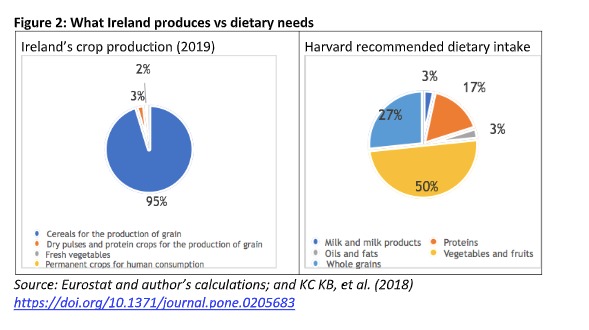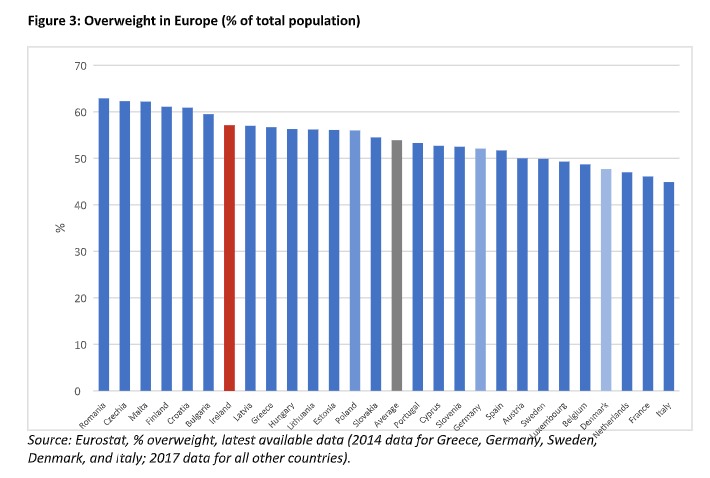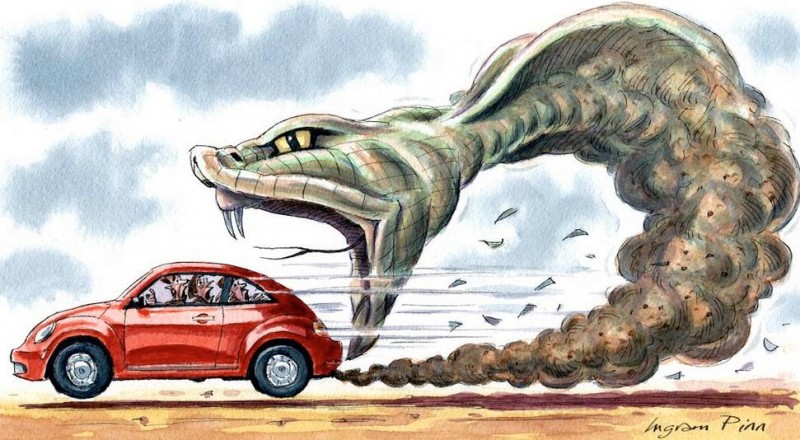We need a Green New Deal for our climate and our health

23 September 2020
Launched in December last year, the European Green Deal is Europe’s roadmap to becoming the first climate-neutral continent.
A fundamental component of the blueprint is the Farm to Fork strategy, which strives for “a fair, healthy and environmentally-friendly food system”.
However, in the 2020 Programme for Government, the new coalition of Fianna Fáil, Fine Gael and the Green Party has separated food production entirely from the document’s section addressing the need for a national Green Deal. Instead, food is lumped into a much-needed effort to balance regional development.
And when it comes to nutrition, the term is mentioned just twice throughout the document. Once in relation to improved procurement for nutritious and locally sourced food in public sector areas (i.e. schools, hospitals, government buildings and prisons) and the second time it crops up is in reference to Ireland being “an island at the centre of the world” in relation to supporting nutrition-related development cooperation.
Improving the food we provide in schools, hospitals, government buildings and prisons is welcome, and pursuing nutrition cooperation makes sense as our efforts to tackle hunger are amongst the most effective in the world.
But if we are to truly align with the EU’s Green New Deal, we need much more ambitious targets to address the intersecting challenges at hand.
Where we are
The EU Farm to Fork strategy aims for 25% of agricultural land to be organic by 2030 and the Programme for Government commits to align itself with the EU by setting itself an “ambitious new target”.
And we have a long way to go if we’re going to meet the regional goal post. To date, just 2.6 per cent of our land is under organic production. That’s three times lower than the EU average and more than nine times lower than Austria, the highest-ranking Member State for organic food production.

While the Programme for Government emphasises the need for improved nutrient management, inadequate attention is paid to what is produced and how it’s being produced.
The drive for cheaper and more abundant food since the 1950s has seen food systems become reliant on a handful of crops mainly to feed livestock. The trend has forged agricultural practices designed for high-yielding, energy-dense commodities to the detriment of nutrient-rich fruits and vegetables.
Currently, over three-quarters of the world’s crop calories come from just eight crops – wheat, rice and maize (representing 50 per cent of the total), sugar, barley, soy, palm and potato.
This lack of diversity has led to widespread environmental degradation, as well as growing malnutrition as products derived from low cost high-calorie commodities contribute to the growth of obesogenic processed foods.
As we can see below, there is a discrepancy between what Ireland produces and the recommended dietary intake.

Inadequate diets are detrimental to our well-being, but they are also expensive. In 2013, the health care costs associated with poor nutrition cost over 5 per cent of global GDP in 2013, which is a conservative figure. Making our diets more sustainable is crucial to addressing obesity in EU Member States, where at least half of the population is overweight.
We exceed that bloc-wide average, as over 57 per cent (roughly 2.7 million people) in Ireland are overweight.

In Ireland, less than 2 per cent of crop production is dedicated to fresh vegetables despite the HSE’s recommendation to increase servings up to seven per day.
Just 0.3 per cent of crop production is dedicated to ‘permanent crops for human consumption’, which generally yield a higher added value per hectare than annual crops.
Crops also play an important role in shaping the rural landscape (e.g. orchards) and help balance agriculture within the environment. However, more than 95 per cent of production is dedicated to annual cereal crops for food, feed, seed and industrial purposes.
Where we need to go
How the food is produced is equally important to what we grow, and organic agriculture is only part of the solution.
Agroforestry can increase food availability of micronutrient-rich fruits, vegetables, and nuts, and it can increase the resilience of farmers in the face of extreme weather events. More trees benefit the eco-system and improves human health through better air quality.
The MacKinnon Report recommends bolstering the low political will and public support for sustainable forestry management, including by placing ‘Forestry in the Department [of Food Marine’s] name’.
Despite an opportune moment to demonstrate political will during the government formation, these recommendations were not implemented. Instead, the Government commits to implementing the report’s recommendations while simultaneously missing the opportunity to do so.
Ireland’s new government needs to rapidly bolster political will, garner public support and create the environment necessary for sustainable food systems.
Nationally, our food systems are not environmentally sustainable, nor efficient if the goal is production of nutritious foods for healthy diets.
Nutrition and nature should be central to agriculture and food policies, and diversity should be a fundamental component coursing through these policies.
All policies and actions put forward by this government need to be looked at through the lens of nutrition and climate. The health of our planet and people depends on it.
Sinead Mowlds is an independent consultant and Research Affiliate with the Cambridge Central Asia Forum. She has worked as Expert for the EU Economic and Social Committee’s Rapporteur on climate justice and for the European Commission in assessing citizen-driven food system projects in European cities.







